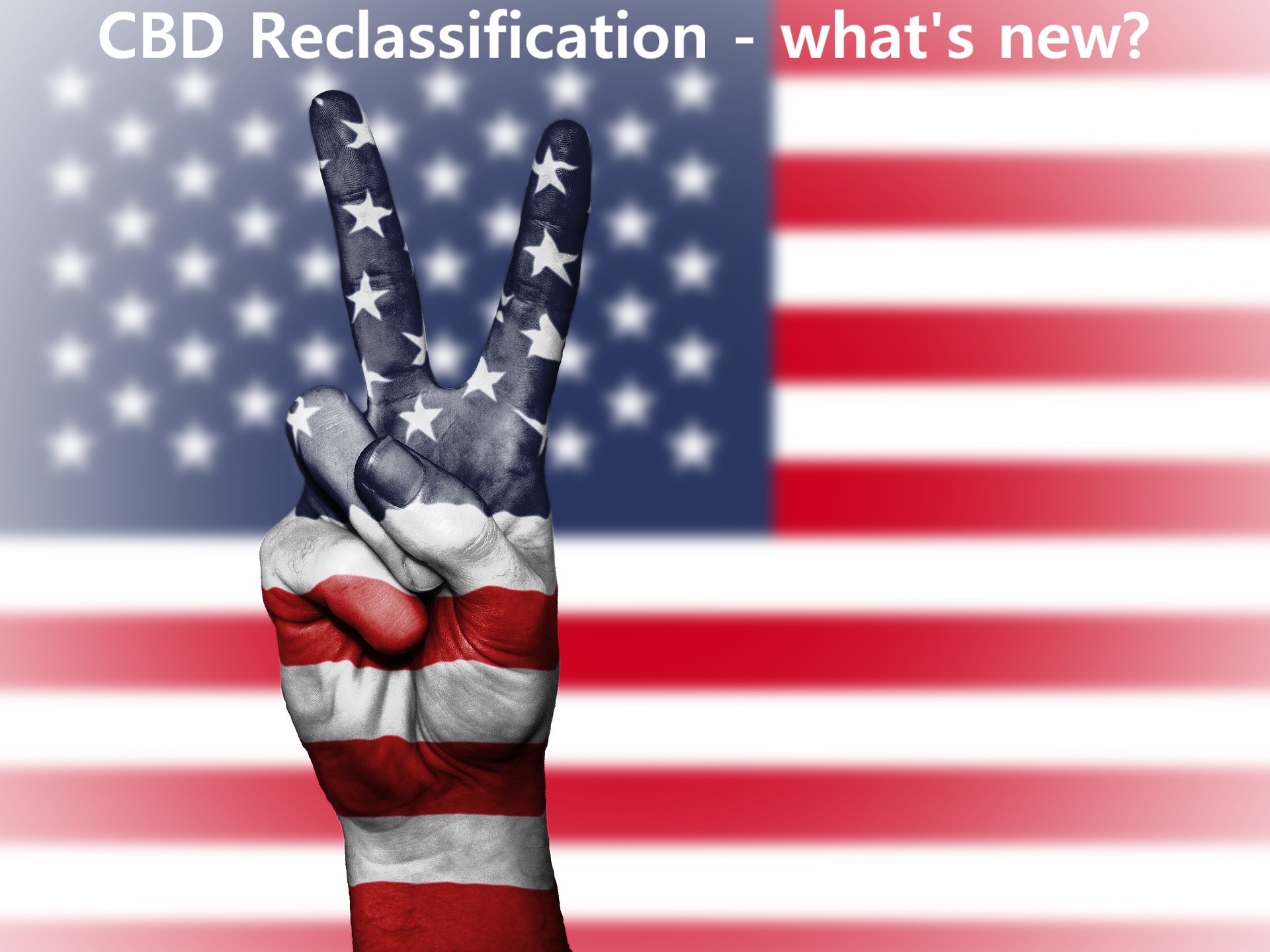On September 28th, 2018, the U.S. Drug Enforcement Administration (DEA) approved a measure allowing certain cannabidiol (CBD) drugs to be reclassified from schedule 1 to schedule 5, but this only applies to CBD products containing 0.1% or less of THC.
If you’re not aware, the schedule 1 classification consists of dangerous drugs such as methamphetamine and heroine. Drugs within this classification contains high potential for abuse with no accepted medicinal use. The schedule 5 classification includes drugs such as cough syrup and motofen and other substances that have low potential for abuse and are frequently prescribed by a doctor. Why CBD reclassification is important?
CBD’s Classification History
Cannabis hasn’t always been criminalized in the United States. In fact, it was officially classified as a medicine back in 1850 when it was listed as a medicinal agent in the U.S. Pharmacopeia. Since then, millions of patients have used cannabis products to treat a variety of ailments. However, this all changed in 1937 with the Marijuana Tax act.
By 1970. the U.S. made cannabis a schedule 1 drug. New CBD reclassification might trigger a larger-scale change.
By 1970, cannabis was classified as a schedule 1 drug. Over the years, CBD has long been a gray area in terms of federal legality. Although many thought it was legal because it has no psychoactive effects, the federal government declared it illegal -just like the cannabis plant itself – on multiple occasions.
In 1996, California became the first U.S. state allowing medicinal cannabis / CBD products to be sold to qualified patients. This was highly controversial and caused a lot of tension between the state and the federal governments, as CBD was still federally illegal. Even so, California still opened many dispensaries and began providing patients in need with their organic medication.
As time went on, more and more states began legalizing cannabis – and CBD – for both medicinal and recreational use, further allowing patients to receive the treatment they need. To this day, each state has different laws regarding the cultivation, use, sales, and transportation of hemp and CBD products. These can even vary by county, city, and municipality. Overall, it’s considered therapeutic and most areas have made it relatively easy to produce and obtain.
CBD’s Reclassification – What This Means For Patients
Now that cannabidiol has been reclassified into the schedule 5 category, patients with CBD medications approved by the FDA have nothing to worry about from the federal government. Those who truly need CBD to live their daily lives can now medicate in peace and without the fear of persecution.
CBD Reclassification will allow the markets to grow
The United States total CBD consumer sales have increased by almost 500% from 2014 to 2018, and this trend is maintaining its momentum. Previous predictions regarding the growth of the CBD market could be highly underestimated, as they didn’t take into consideration the federal governments reclassification. It can only be assumed that this new legislation will increase the number of patients using cannabidiol, as legality could be a big factor in whether or not people are willing use the CBD.
Prior to the classification, in June 2018, the FDA approved the first CBD based drug called Epidiolex. This drug is used to treat a rare form of epilepsy in children. Even though the FDA approved Epidiolex, until September of 2018, this drug was still illegal in the eyes of the federal government (yes, it makes absolutely no sense). Now, patients needing Epidiolex can now medicate without worry of persecution.
CBD, not THC – Why it Matters
Although the federal government changed its mind about the classification of certain CBD products, THC still remains a schedule 1 drug. This is a big step forward, but studies have shown that CBD and THC work hand in hand, and together, have a synergistic effect.
Many patients using cannabis for their illnesses, could also benefit from adding THC to the mix. So even though there will be a new wave of drugs coming into the United States market, many of them won’t be as effective as they could be.
CBD Reclassification: Forward Looking
Looking forward into the future of cannabis legalization, one can only assume that full legalization will eventually come. 2018 was a big year for the cannabis movement. 33 U.S. states, including D.C., have allowed the legalization of medicinal cannabis as of November 2018, while 10 others have legalized the plant for recreational use. Moving further north, Canada legalized cannabis nationwide in October 2018, making it the second country behind Uruguay to completely legalize the plant for both medical and recreational uses.
The pressure is on for the United States to follow suit, and we can only hope that the federal government sees the need for Americans to have full access to medical cannabis, not just some select CBD products.
